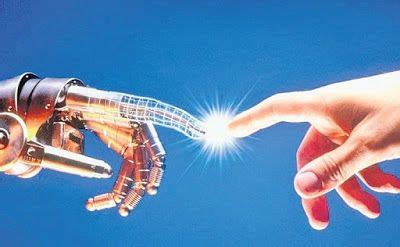In today’s rapidly evolving landscape, envisioning the future requires more than mere speculation; it demands pioneering thought and innovative insights. “Shaping Tomorrow with Innovative Insights” delves into the transformative power of forward-thinking strategies, exploring how visionary ideas and groundbreaking developments are redefining our world. This comprehensive analysis highlights the critical areas where pioneering thought is making a significant impact, fostering sustainable growth, and addressing the complex challenges of the modern era.
Pioneering thought embodies the spirit of innovation and the courage to explore uncharted territories. It is the driving force behind significant advancements in technology, science, society, and the environment. By challenging conventional wisdom and embracing novel approaches, pioneering thought paves the way for breakthroughs that shape the future.
A. Embracing Creativity and Innovation
At the heart of pioneering thought lies creativity. Encouraging creative thinking enables individuals and organizations to generate unique solutions to complex problems. Innovation, the practical application of creative ideas, transforms these concepts into tangible advancements that propel society forward.
B. Fostering a Culture of Curiosity
Curiosity is the catalyst for discovery and learning. A culture that nurtures curiosity encourages continuous exploration and questioning, leading to deeper understanding and novel insights. This environment is essential for sustaining pioneering thought and fostering long-term progress.
C. Encouraging Risk-Taking and Resilience
Pioneering initiatives often involve uncertainty and risk. Embracing risk-taking and developing resilience are crucial for overcoming obstacles and achieving success. Learning from failures and persisting in the face of challenges strengthens the capacity for innovation and drives continuous improvement.
Key Areas Influenced by Pioneering Thought
Pioneering thought is making significant strides across various domains, each contributing to the holistic advancement of society. The following sections explore the pivotal areas where innovative insights are creating profound changes.
Technology and Digital Transformation
Technology is at the forefront of shaping tomorrow’s world. Digital transformation, driven by pioneering thought, is revolutionizing industries, enhancing efficiency, and creating new opportunities.
A. Artificial Intelligence and Machine Learning
Artificial Intelligence (AI) and Machine Learning (ML) are transforming the way we interact with technology. These advancements enable machines to learn from data, make decisions, and perform tasks with increasing autonomy. Applications range from healthcare diagnostics to autonomous vehicles, significantly impacting various sectors.
B. Internet of Things (IoT)
The Internet of Things connects everyday objects to the internet, allowing them to communicate and share data. IoT enhances automation, improves efficiency, and provides valuable insights through data analytics. Smart homes, wearable devices, and industrial automation are prime examples of IoT’s transformative potential.
C. Blockchain Technology
Blockchain offers a decentralized and secure method for recording transactions and managing data. Its applications extend beyond cryptocurrencies to areas such as supply chain management, healthcare records, and digital identity verification. Blockchain’s transparency and security features make it a game-changer in numerous industries.
D. Quantum Computing
Quantum computing represents a significant leap in computational power, enabling the solving of complex problems beyond the capabilities of classical computers. This technology has the potential to revolutionize fields such as cryptography, material science, and drug discovery, opening new frontiers in research and development.
Sustainable Development and Environmental Stewardship
Pioneering thought plays a crucial role in addressing environmental challenges and promoting sustainable development. Innovative strategies are essential for balancing economic growth with environmental preservation.
A. Renewable Energy Innovations
Advancements in renewable energy technologies, such as solar, wind, and hydroelectric power, are essential for reducing carbon emissions and combating climate change. Pioneering innovations in energy storage and smart grids enhance the efficiency and reliability of renewable energy sources, facilitating their widespread adoption.
B. Sustainable Agriculture
Sustainable agriculture practices aim to increase food production while minimizing environmental impact. Innovations such as precision farming, vertical agriculture, and genetically modified crops contribute to more efficient and sustainable food systems, ensuring food security for the growing global population.
C. Circular Economy Models
The circular economy promotes the reuse, recycling, and regeneration of materials, reducing waste and conserving resources. Pioneering initiatives in product design, manufacturing processes, and waste management are essential for creating sustainable economic systems that minimize environmental degradation.
D. Conservation Technologies
Technological advancements in conservation, such as remote sensing, wildlife tracking, and habitat restoration, play a vital role in preserving biodiversity and protecting natural ecosystems. These technologies provide critical data and tools for effective conservation efforts, ensuring the sustainability of our planet’s natural resources.
Healthcare and Biotechnology
The healthcare sector is undergoing a transformation driven by pioneering thought and technological innovation. These advancements are enhancing patient care, improving outcomes, and making healthcare more accessible.
A. Personalized Medicine
Personalized medicine tailors medical treatment to the individual characteristics of each patient, including genetics, lifestyle, and environment. This approach improves the effectiveness of treatments, reduces side effects, and enhances overall patient outcomes.
B. Telemedicine and Digital Health
Telemedicine leverages digital technologies to provide remote medical consultations and services. This innovation increases access to healthcare, particularly in underserved areas, and improves the efficiency of healthcare delivery by reducing the need for in-person visits.
C. Biotechnology Advancements
Biotechnology encompasses a range of technologies that manipulate biological systems for medical and industrial purposes. Innovations in genetic engineering, regenerative medicine, and bioinformatics are driving significant progress in disease treatment, drug development, and sustainable manufacturing processes.
D. Healthcare Data Analytics
The use of big data and analytics in healthcare enables the collection, analysis, and interpretation of vast amounts of patient data. This information is crucial for improving clinical decision-making, optimizing resource allocation, and advancing medical research.
Education and Lifelong Learning
Education systems are evolving to meet the demands of the future workforce, with pioneering thought driving innovative approaches to teaching and learning.
A. Digital Learning Platforms
Digital learning platforms offer flexible and personalized education experiences, allowing students to learn at their own pace and access a wide range of resources. These platforms enhance the accessibility and effectiveness of education, catering to diverse learning styles and needs.
B. STEAM Education
Incorporating Science, Technology, Engineering, Arts, and Mathematics (STEAM) into education fosters creativity, critical thinking, and problem-solving skills. This interdisciplinary approach prepares students for the complexities of the modern world and encourages innovative thinking.
C. Lifelong Learning Initiatives
Lifelong learning emphasizes continuous education and skill development throughout an individual’s life. Pioneering initiatives in this area support workforce adaptability, ensuring that individuals can keep pace with technological advancements and changing job market demands.
D. Inclusive Education Practices
Inclusive education ensures that all individuals, regardless of their backgrounds or abilities, have access to quality education. Innovations in teaching methods, accessibility tools, and support services promote equity and diversity within educational institutions.
Urban Development and Smart Cities
Urbanization is accelerating, and pioneering thought is essential for creating sustainable and livable cities. Smart city initiatives leverage technology and innovative planning to enhance the quality of life for urban residents.
A. Intelligent Transportation Systems
Intelligent transportation systems use data and technology to optimize traffic flow, reduce congestion, and improve public transportation services. Innovations such as autonomous vehicles, real-time traffic monitoring, and smart traffic signals contribute to more efficient and sustainable urban mobility.
B. Green Building Technologies
Green building technologies focus on designing and constructing buildings that are energy-efficient, environmentally friendly, and sustainable. Innovations in materials, construction methods, and energy management systems reduce the environmental impact of urban development.
C. Smart Infrastructure
Smart infrastructure integrates digital technologies into physical systems, enhancing their functionality and efficiency. Examples include smart grids, connected utilities, and intelligent waste management systems, which improve the sustainability and resilience of urban environments.
D. Urban Green Spaces
Incorporating green spaces into urban planning promotes environmental sustainability and enhances the well-being of residents. Innovations in urban landscaping, such as vertical gardens and rooftop parks, contribute to healthier and more vibrant cities.
The Role of Policy and Governance in Pioneering Thought
Effective policy and governance frameworks are essential for supporting and guiding pioneering initiatives. These structures provide the necessary support, regulation, and incentives to foster innovation and ensure that advancements align with societal goals.
A. Innovation-Friendly Policies
Policies that encourage research and development, provide funding for innovative projects, and support entrepreneurial endeavors are critical for fostering a culture of pioneering thought. These policies create an environment where innovation can thrive and contribute to economic growth.
B. Regulatory Frameworks for Emerging Technologies
As new technologies emerge, regulatory frameworks must adapt to address potential risks and ensure ethical standards. Balancing innovation with safety and privacy considerations is essential for the responsible development and implementation of advanced technologies.
C. Public-Private Partnerships
Collaborations between the public and private sectors leverage the strengths and resources of both parties, accelerating the development and deployment of pioneering initiatives. These partnerships are vital for addressing complex challenges and achieving large-scale impact.
D. Ethical Guidelines and Standards
Establishing ethical guidelines and standards ensures that pioneering advancements align with societal values and respect human rights. These frameworks guide the responsible use of technology and promote trust and accountability in innovative endeavors.
Overcoming Challenges in Pioneering Thought
Despite the significant potential of pioneering thought, several challenges must be addressed to realize its full impact. Overcoming these obstacles requires strategic planning, collaboration, and a commitment to continuous improvement.
A. Bridging the Digital Divide
Ensuring equitable access to technology and digital resources is essential for maximizing the benefits of pioneering thought. Addressing disparities in access to education, infrastructure, and digital tools promotes inclusivity and prevents the widening of socio-economic gaps.
B. Addressing Ethical and Privacy Concerns
The rapid advancement of technology raises ethical and privacy concerns that must be carefully managed. Implementing robust data protection measures, promoting transparency, and engaging in ethical deliberations are crucial for safeguarding individual rights and maintaining public trust.
C. Managing Resource Constraints
Innovative projects often require significant financial and human resources. Efficient resource management, securing adequate funding, and fostering talent through education and training are essential for sustaining pioneering initiatives.
D. Navigating Resistance to Change
Change can be met with resistance from various stakeholders, including individuals, organizations, and communities. Effective communication, stakeholder engagement, and demonstrating the tangible benefits of pioneering thought can mitigate resistance and facilitate smoother transitions.
E. Ensuring Long-Term Sustainability
Pioneering initiatives must be designed with long-term sustainability in mind. This involves considering environmental, economic, and social factors to ensure that advancements contribute to enduring and positive outcomes for future generations.
Case Studies: Pioneering Thought in Action
Examining real-world examples of pioneering thought provides valuable insights into its practical applications and benefits. The following case studies highlight how innovative ideas are transforming various sectors and driving sustainable growth.
Case Study 1: Tesla’s Electric Vehicles and Energy Solutions
Tesla exemplifies pioneering thought in the automotive and energy sectors. By developing cutting-edge electric vehicles and energy storage solutions, Tesla has revolutionized the transportation industry and contributed to the transition towards sustainable energy.
A. Electric Vehicle Innovation
Tesla’s electric vehicles offer high performance, long range, and advanced autonomous driving capabilities. These innovations have set new standards for electric mobility, encouraging other manufacturers to invest in electric vehicle technology.
B. Energy Storage and Solar Solutions
Tesla’s energy storage products, such as the Powerwall and Powerpack, enable efficient energy management and storage for homes and businesses. Additionally, Tesla’s solar energy solutions promote the adoption of renewable energy sources, reducing reliance on fossil fuels.
C. Sustainable Manufacturing Practices
Tesla incorporates sustainable practices in its manufacturing processes, including the use of renewable energy, recycling initiatives, and environmentally friendly materials. These efforts contribute to minimizing the environmental impact of production and promoting sustainability.
Case Study 2: Singapore’s Smart Nation Initiative
Singapore’s Smart Nation initiative demonstrates how pioneering thought can transform a nation’s infrastructure, governance, and quality of life through technology and innovation.
A. Digital Infrastructure Development
Singapore has invested heavily in digital infrastructure, including high-speed internet connectivity, widespread IoT integration, and advanced data centers. This robust infrastructure supports the implementation of smart services and enhances the efficiency of urban systems.
B. E-Government Services
The Smart Nation initiative includes comprehensive e-government services that streamline administrative processes, improve accessibility, and enhance citizen engagement. Digital platforms for government services reduce bureaucracy and increase transparency.
C. Smart Mobility Solutions
Singapore has implemented smart mobility solutions, such as autonomous vehicles, smart traffic management systems, and integrated public transportation networks. These innovations improve urban mobility, reduce congestion, and enhance the overall transportation experience for residents.
D. Innovation and Research Hubs
The establishment of innovation and research hubs fosters collaboration between academia, industry, and government. These centers drive technological advancements, support startups, and accelerate the development of innovative solutions to urban challenges.
Case Study 3: The Rise of Telemedicine in Healthcare
The COVID-19 pandemic accelerated the adoption of telemedicine, showcasing the transformative impact of pioneering thought in the healthcare sector.
A. Expansion of Telehealth Services
Telemedicine platforms enable remote consultations, diagnostics, and treatment, increasing access to healthcare services, especially in rural and underserved areas. This innovation reduces the need for in-person visits and minimizes the risk of disease transmission.
B. Integration of AI in Diagnostics
AI-powered diagnostic tools enhance the accuracy and efficiency of medical assessments. These technologies assist healthcare professionals in identifying diseases, predicting patient outcomes, and personalizing treatment plans.
C. Remote Patient Monitoring
Wearable devices and remote monitoring systems allow continuous tracking of patient health metrics, enabling proactive management of chronic conditions and timely interventions. This innovation improves patient outcomes and reduces hospital readmissions.
D. Digital Health Records
The implementation of secure and interoperable digital health records streamlines information sharing among healthcare providers, enhancing coordination and continuity of care. This advancement improves the overall quality of healthcare delivery.
The Future of Pioneering Thought
As we look ahead, the role of pioneering thought will continue to expand, driving advancements that address the evolving needs of society. The future will be shaped by ongoing innovations, collaborative efforts, and a steadfast commitment to sustainable and inclusive development.
A. Integration of AI and Human Intelligence
The synergy between artificial intelligence and human intelligence will lead to unprecedented advancements in various fields. Collaborative AI systems that augment human capabilities will enhance decision-making, creativity, and problem-solving across diverse sectors.
B. Sustainable Urban Ecosystems
Future urban development will prioritize the creation of sustainable ecosystems that harmonize with the natural environment. Innovations in green architecture, renewable energy integration, and sustainable transportation will create cities that are both livable and environmentally responsible.
C. Biotechnology and Genetic Engineering
Advancements in biotechnology and genetic engineering will revolutionize healthcare, agriculture, and environmental management. Personalized medicine, genetically modified crops, and bioremediation techniques will address critical challenges and improve quality of life.
D. Space Exploration and Colonization
Pioneering thought will drive humanity’s exploration and colonization of space, opening new frontiers for scientific discovery and resource utilization. Innovations in space technology, sustainable habitats, and interplanetary travel will expand our presence beyond Earth.
E. Ethical and Inclusive Innovation
Future innovations will emphasize ethical considerations and inclusivity, ensuring that advancements benefit all members of society. Equitable access to technology, responsible data management, and ethical governance frameworks will guide the development of a just and inclusive future.
Conclusion
Shaping tomorrow with innovative insights is not merely an aspiration; it is a necessity for navigating the complexities of the modern world. Pioneering thought drives the advancements that address pressing challenges, foster sustainable growth, and enhance the quality of life for individuals and communities globally. By embracing creativity, fostering a culture of curiosity, and overcoming the inherent challenges of innovation, we can unlock the full potential of pioneering thought and create a future that is resilient, inclusive, and prosperous.














